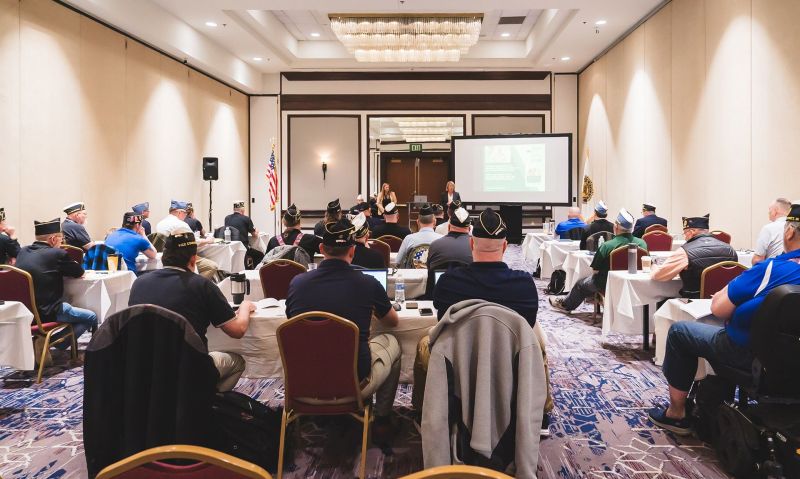
Suicide prevention training through the Legion’s partnership with Columbia University is free; classes are scheduled in June and July.
The American Legion wants 90 minutes of your time to save the life of a veteran.
The Legion has partnered with Columbia University to host free, 90-minute training classes that provide the tools to safely intervene when a veteran is in crisis. The training supports the Legion’s veteran suicide prevention mission – Be the One – which encourages Legion Family members to take action when a veteran is at risk of suicide.
For the training, Columbia University uses the Columbia Protocol, also known as the Columbia-Suicide Severity Rating Scale, that supports suicide risk assessment through a series of six simple, plain-language questions that anyone can ask. The answers help users identify whether someone is at risk for suicide, assess the severity and immediacy of that risk, and gauge the level of support that the person needs.
Register for an upcoming class. There are upcoming virtual and in-person classes scheduled in June and July. See class dates, times and registration links by visiting legion.org/betheone/training. The training page will be updated as more classes, both virtual and in-person, are scheduled.
More than 1,700 American Legion Family members have taken the Columbia Protocol suicide prevention training since February. The Columbia Protocol training “was fantastic because it’s a partnership with The American Legion that includes the Be the One mission, it is evidenced-based and we’re able to take it and directly apply it right into the world by which we live in with the American Legion Family,” said American Legion Department of Utah Commander Ninzel Rasmuson, who took the training during May Spring Meetings in Indianapolis.
“If everybody felt comfortable asking the (six) questions, as a whole we would be in a better place because we would identify people who might not otherwise come forward,” said Dr. Keita Franklin, a suicide prevention expert who conducts the Columbia Protocol classes. “At the end of the day we know that suicide is preventable. When we can identify these small subtle signs in people, when we know people well enough and we’re approachable, and we ask them the right questions, it’s 100 percent preventable.”
- Be the One

